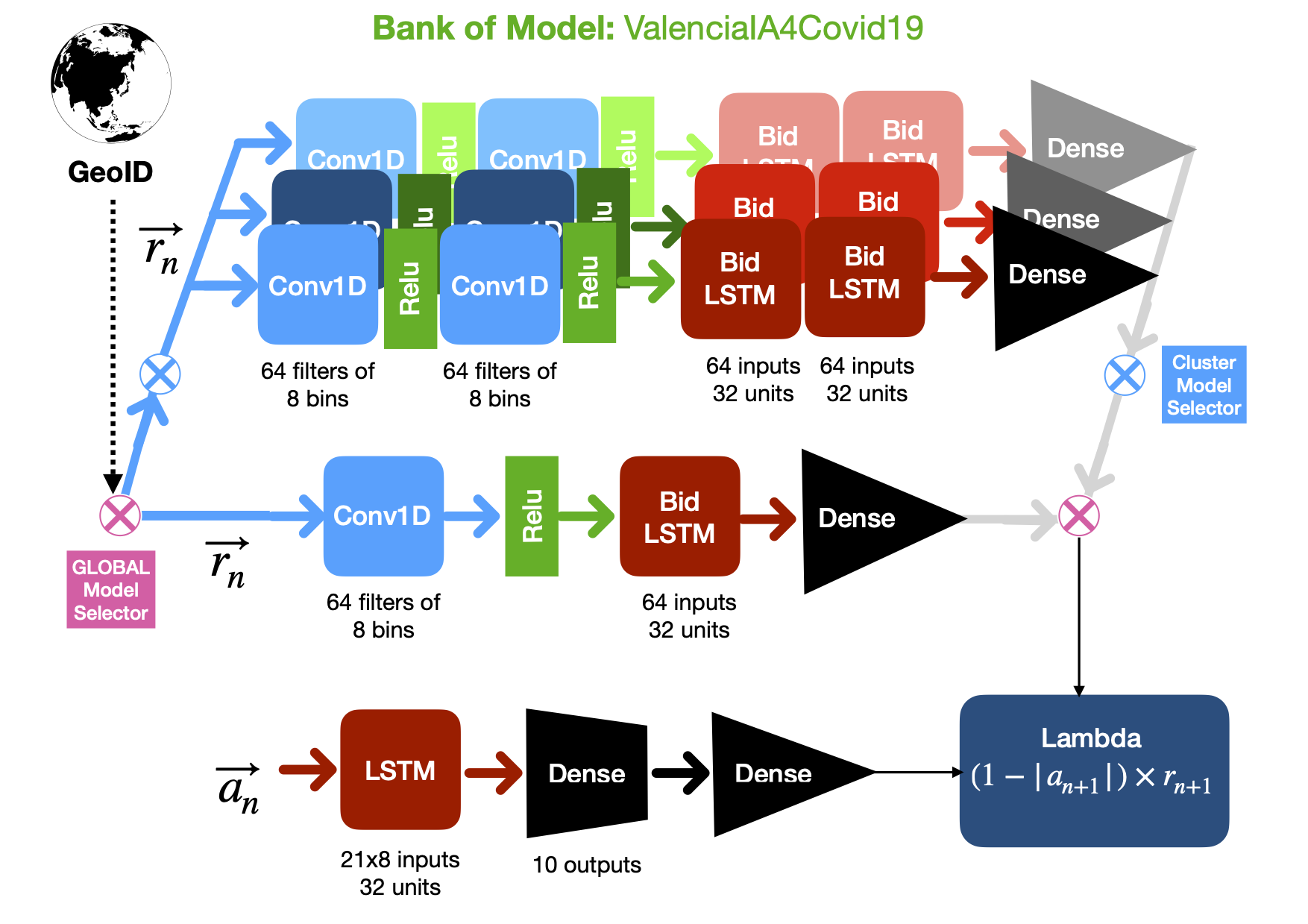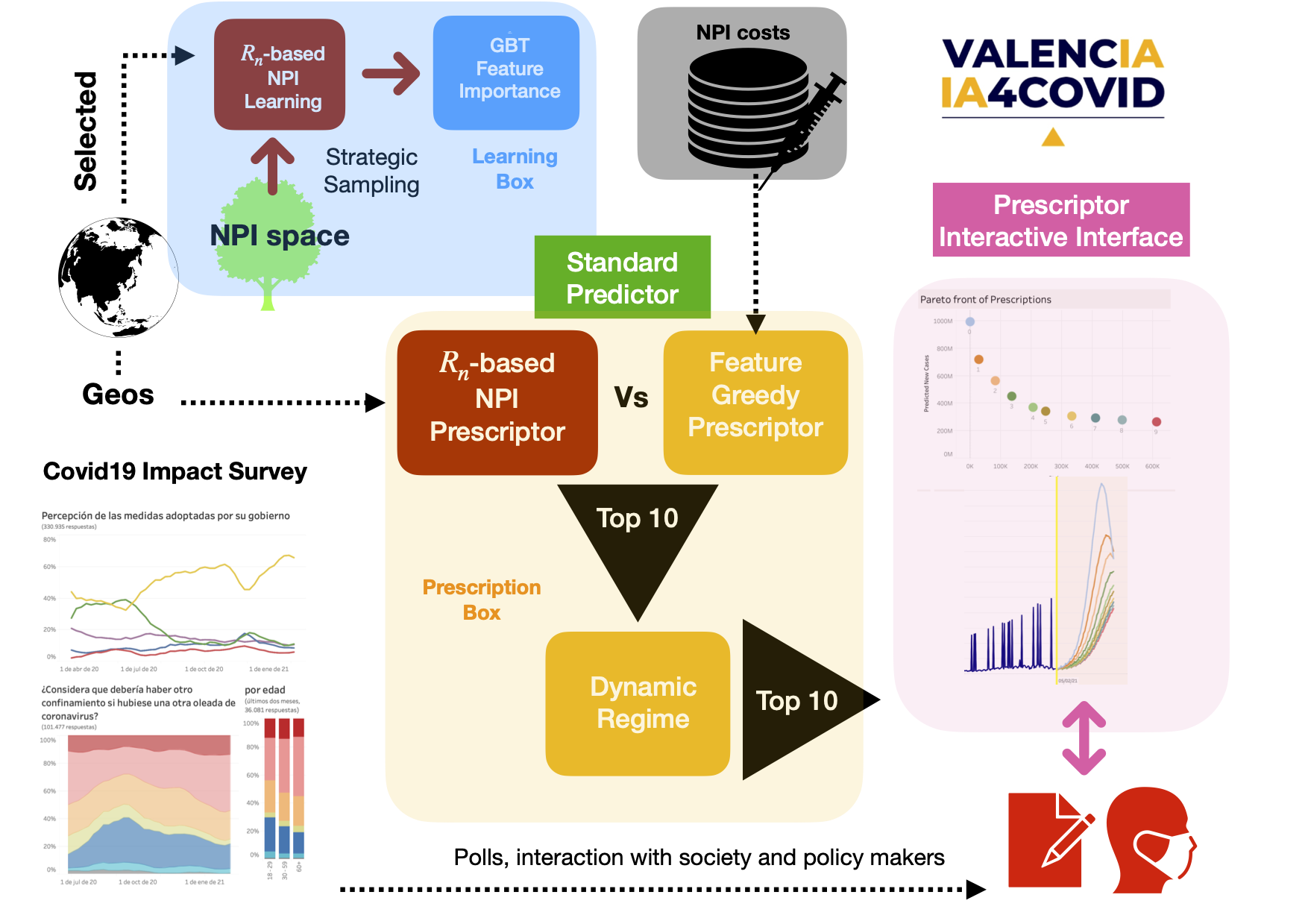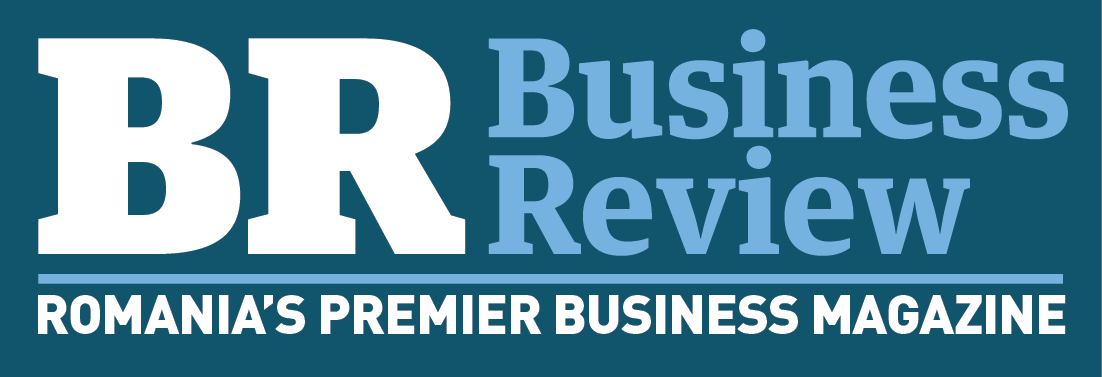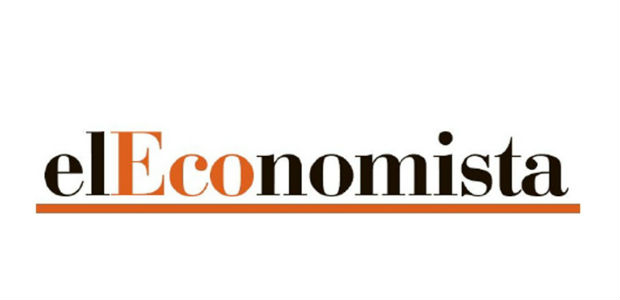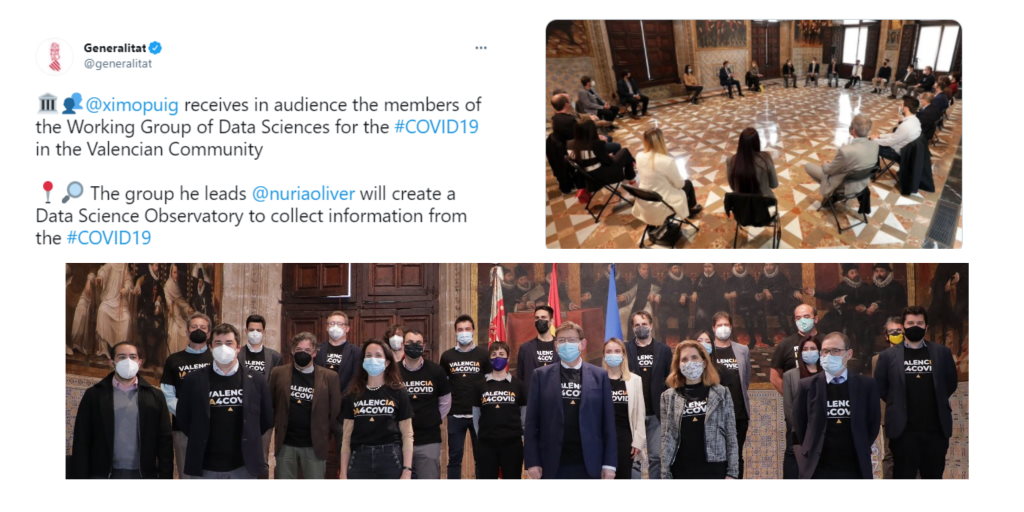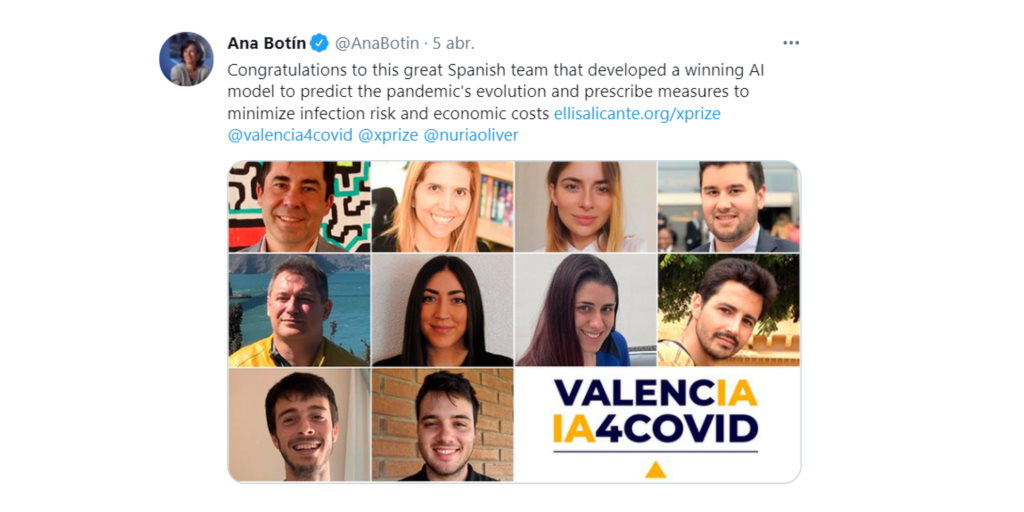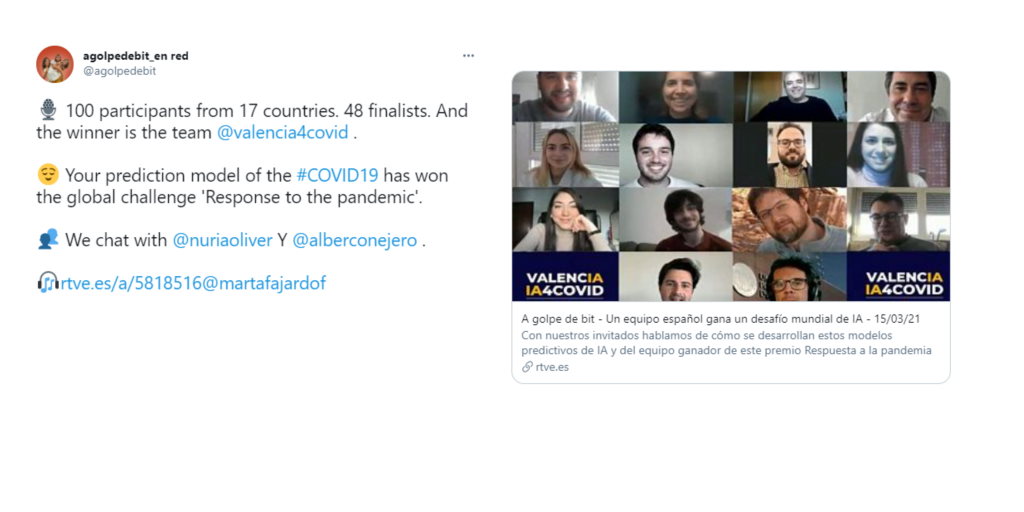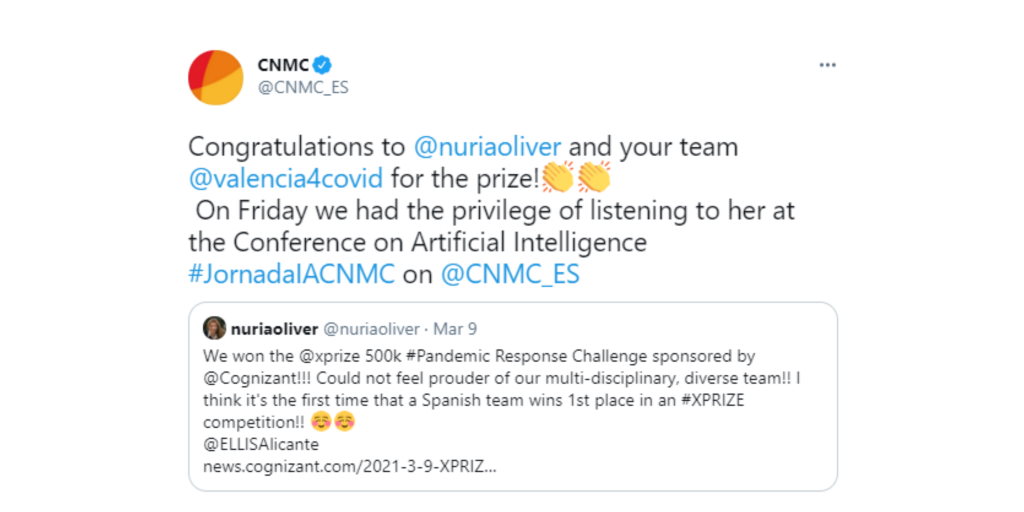Meet The Team
-

Kristina Polotskaya

Òscar Garibo

Nuria Oliver
-

Manuel G. Portolés

Miguel Angel García

Victor de Elena

J. Alberto Conejero
-

Miguel Rebollo

Francisco Escolano

Elisa Espín

Eloy Piñol Jimenez
-

Aurora Mula Leal

Adolfo Lopez

Miguel Angel Lozano
Our Multidisciplinary Team
VALENCIA IA4COVID
This group is made up of more than twenty experts from the Universities and research centers of the Valencian Community (Spain) and led by Dr. Nuria Oliver. We have all been working intensively since the beginning of the pandemic, altruistically and using the resources available to us in our respective institutions and with the occasional philanthropic collaboration of some companies.
Affiliated with: Ellis Alicante, Universitat Jaume I, Universidad de Alicante, Universidad Miguel Hernández, Universitat Politècnica de València, Universidad Cardenal Herrera CEU.
